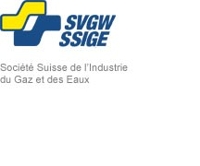Projets terminés
FATE-Nano
- Funding : SSIGE (Société Suisse des Industriels de l’Eau et du Gaz) et SIG (Services Industriels de Genève)
- 2017 – 2019
- The objective of this project is to investigate the fate and transformation of manufactured nanoparticles through the water treatment systems used for the production of drinking waters. Focus will be made on the coagulation-flocculation processes so as to improve the removal of the nanoparticles and isolate the key parameters
- UniGe Responsible : Serge STOLL
- PhD student : Lina Marcela Ramirez
- Partners : Société Suisse des Industriels de l’Eau et du Gaz et Service Industriels de Genève
NanoMILE (Engineered nanomaterial mechanisms
 of interactions with living systems and the environment: a universal framework for safe nanotechnology)
of interactions with living systems and the environment: a universal framework for safe nanotechnology)
- Funding : European Union FP7 Large Scale Project (budget 13 ME)
- 2013 – 2017
- The NanoMILE project intends to establish a fundamental understanding of the mechanisms of nanomaterial interactions with living systems and the environment, across the entire life cycle of nanomaterials and in a wide range of target species. The project will identify critical properties (physico-chemical descriptors) that confer the ability to induce harm in biological systems. This is key to allowing these features to be considered in nanomaterial production (“safety by design”)
- UniGe Responsible : Serge STOLL
- Post Doc and PhD student : Fabrice Carnal and Olena Oriekhova
- Partners : all NanoMILE partners (29)
NanoFASE (Nanomaterial Fate and Speciation in the Environment)
- Funding : Office of the State Secretariat for Education, Research, and Innovation (SERI) and European Union H2020 (budget 11 ME)
- 2015 – 2019
- The overarching objective of NanoFASE is to deliver an integrated Exposure Assessment Framework (protocols, models, parameter values, guidance ...) that - Allows all stakeholders to assess the environmental fate of nano releases from industrial nano-enabled products, -Is acceptable in regulatory registrations and can be integrated into the EUSES model for REACH assessment, - Allows industry a cost-effective product-to-market process, and - Delivers the understanding at all levels to support dialogue with public and consumers. The ambition is to reach a level of ENM Fate and exposure assessment at least comparable with that for conventional chemicals
- UniGe Responsible : Serge STOLL
- Post Doc and PhD student : Fabrice Carnal and Arnaud Clavier
- Partners : all NanoFASE partners (42)
Swiss State Secretariat for Education, Research and Innovation (SERI)
- Funding : SSIGE (Société Suisse des Industriels de l’Eau et du Gaz) et SIG (Services Industriels de Genève)
- 2013 – 2016
- The overall project is related to Environmental Sciences and water pollution and contribute to a better understanding of the fate, transformation of manufactured nanoparticles in aquatic systems and improvement of water treatment processes in Malaysia
- UniGe Responsible : Serge STOLL
- Post Doc student : Fatehah Mohd Omar
- Partners : University Sains Malaysia

Importance of Disagglomeration Process on the Fate of Manufactured Nanoparticle in Aquatic Systems
- Funding : Swiss National Fundation (SNF)
- 2014 – 2015 (completed)
- We proposed in this research proposal to get an insight into the understanding of the different modes and mechanisms of disagglomeration in presence of natural compounds and conditions representative of aquatic systems. Such a research domain constitutes an important aspect with regards to the risks associated with manufactured nanoparticles by including the possible transformations of the agglomerates they are frequently forming
- UniGe Responsible : Serge STOLL
- PhD Student : Frédéric Loosli
- Partners : University of Bordeaux, University Paris Diderot (France)

Importance of Complexation Processes on the Fate, Reactivity and Transport of Manufactured Nanoparticles in Aquatic Systems
- Funding : Swiss National Fundation (SNF)
- 2012 – 2014 (completed)
- We propose in this research proposal to get an insight into the understanding of the relationship between manufactured NP properties and most importantly their resulting stability (dispersion versus aggregation) in conditions representative of aquatic systems
- UniGe Responsible : Serge STOLL
- PhD Student : Frédéric Loosli
- Partner : University of Bordeaux (France)

Behavior of manufactured CeO2 Nanoparticles in Aquatic Systems: Coating, Aging and Agglomeration
- Funding : University of Geneva – DIP
- 2013 – 2017
- We propose in this research proposal to get an insight into the behaviour of CeO2 manufactured nanoparticles which are today massively produced by the industry and incorporated in many consumer products. Focus will be made on the interactions between CeO2 nanoparticles and natural compounds as well as the aging processes under variable conditions such as pH
- UniGe Responsible : Serge STOLL
- PhD Student : Olena Oriekhova
- Partners : University of Bordeaux (France), NanoMile partners

Computer Modeling of Nanoparticle surface charging processes and Heteroagglomeration process.
- Funding : University of Geneva – DIP
- 2013 – 2017
- In this research we are exploring the nanoparticle surface reactivity and charging processes by investigating the impact of the solution chemistry and nanoparticle chemistry. Agglomeration, heteroagglomeration process are also investigated to derive predictive transport models of nanoparticles in the environment (water, soil) by including natural organic matter and inorganic colloids. These fundamental studies are mainly based on computer modelling.
- UniGe Responsible : Serge STOLL
- PhD Student : Arnaud Clavier
- Partners : NanoFase partners




